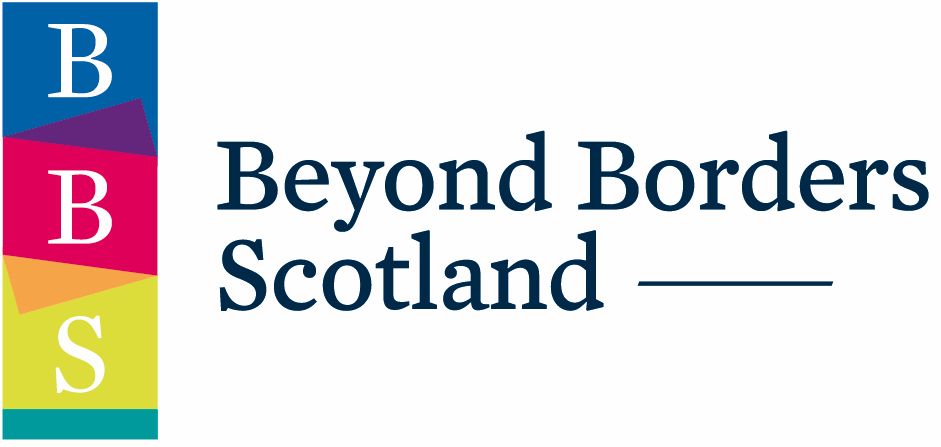1st August 2018
By 2018, slavery is illegal in every country, yet there are an estimated 46 million slaves worldwide. Despite this dystopian reality, for many, the idea of modern slavery is completely foreign and removed from our daily lives. We may hear about it on the news or read about it through anti-slavery charity campaigns, yet we often fail to comprehend the human side of this global epidemic.
Humanitarian photographer Lisa Kristine has set out to change this. Over the past 30 years, Kristine has travelled to more than 100 countries to document indigenous cultures and raise awareness of social issues like modern slavery through her photography. For Kristine, photography can be used to depict deeply human stories and inspire change. Her current photography collection, Bound to Freedom, will be exhibited at Beyond Borders International Festival at Traquair House this August as part of our focus on modern slavery. Today we are putting the spotlight on her work to explore further how photography can bear witness to modern slavery.
Her decision to focus her work on advocating for the elimination of modern slavery stems from a personal encounter with a supporter of NGO Free the Slaves at the World Peace Summit in 2013. According to Kristine, she was unaware that slavery still affects tens of millions of people across the globe. “My life is based on observing others, and yet I had not seen it,” she recalls. This revelation shocked her, so within the next few weeks she decided to get involved with the work of Free the Slaves.
For Kristine, photography is the ultimate tool for peace building and forming human connections. She sees her work as an invitation to see one another as brothers and sisters and as part of the wider community of humanity. Her photography provides both herself and those viewing her work with a connection with people living thousands of miles away, which, to her, is more important than technique or equipment. In this way, she is able to learn from and about others and their cultures and share their stories with people across the world.
Part of her work involves advocating for the eradication of modern slavery. Millions have viewed her TEDx talk, Why I Free Slaves. In it, she talks about what it is like to document the harsh realities of modern slavery and highlights the widespread nature of this practice through sharing troubling images that depict miners in the Congo, bricklayers in Nepal, and brick kiln slaves in India. When talking about documenting the plight of miners in Ghana who work unpaid in life-threatening conditions, she reflects on her privilege due to her occupation and the resulting responsibility she has to share their stories with the world. “I got to climb out of that hole, and I got to go home, but they likely never will, because they’re trapped in slavery,” she contemplates.
Her work on modern slavery has been turned into several exhibitions that have received global attention due to their striking nature. In 2010, she co-published a collection titled Slavery alongside Free the Slaves. The images in this collection bear witness to modern slavery and provided a platform for viewers to connect with her subjects with a view to provoking their engagement and desire to enact change. “The wonderful thing about photography is that it transcends language,” says Kristine. And she’s not wrong – her photography provides us all with an inescapable call to action to join her in her efforts to eliminate modern slavery.
Bound to Freedom sheds light on the fact that slavery did not end with the demise of the trans-Atlantic slave trade. It highlights the need for the global economy to eradicate its dependence on the modern slave trade and grant those living in slavery with their inalienable right to be free and be autonomous. Each of the photographs represent a powerful call to action for each viewer to commit to ensuring the liberation of each and every individual living in slavery.
Join us at Beyond Borders International Festival on Saturday 25th and Sunday 26th August to experience Kristine’s powerful photography for yourself. Bound to Freedom will be exhibited as part of the Festival’s Walled Garden Arts and Music programme along with workshops, performing and visual arts and musical performances. The Main Tent will also host a range of sessions with a variety of international journalists, diplomats and writers, including sessions with Rights Lab Director, Kevin Bales, Beyond Conflict Director, Tim Phillips, anti-trafficking activist, Minh Dang, and Madeleine Habib, the first female captain of the Dignity 1 rescue boat with Médecins Sans Frontières.
Beyond Borders Scotland Ltd. A Ltd company SC440453
ContactPrivacy Overview
| Cookie | Duration | Description |
|---|---|---|
| cookielawinfo-checkbox-analytics | 11 months | This cookie is set by GDPR Cookie Consent plugin. The cookie is used to store the user consent for the cookies in the category "Analytics". |
| cookielawinfo-checkbox-functional | 11 months | The cookie is set by GDPR cookie consent to record the user consent for the cookies in the category "Functional". |
| cookielawinfo-checkbox-necessary | 11 months | This cookie is set by GDPR Cookie Consent plugin. The cookies is used to store the user consent for the cookies in the category "Necessary". |
| cookielawinfo-checkbox-others | 11 months | This cookie is set by GDPR Cookie Consent plugin. The cookie is used to store the user consent for the cookies in the category "Other. |
| cookielawinfo-checkbox-performance | 11 months | This cookie is set by GDPR Cookie Consent plugin. The cookie is used to store the user consent for the cookies in the category "Performance". |
| viewed_cookie_policy | 11 months | The cookie is set by the GDPR Cookie Consent plugin and is used to store whether or not user has consented to the use of cookies. It does not store any personal data. |
